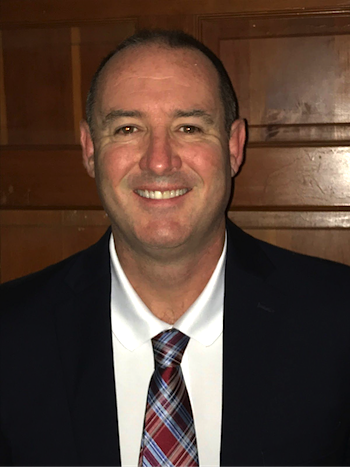 Greg Edge
Greg Edge
Attalla Elementary School
Attalla City Schools
In 2012, Greg Edge became principal of Attalla Elementary, a PK-5 school of about 600 students. Greg earned his B.S. in math education at Jacksonville State, has two Masters degrees (mathematics and Instructional Leadership) from the University of Alabama, and an Educational Specialist degree in Instructional Leadership from Jacksonville State. He and his wife Jennifer have three sons, AJ, Eric, and Eli.
How long have you been a principal?
I have been a principal for 9 years.
Briefly describe your education journey.
My whole educational career has been in Attalla. I started as a middle school math teacher and coach for 10 years at Etowah Middle School. I then moved to the assistant principal position at the middle school for six years and served as the principal for three years. I am now currently in my 7th year as the principal at Attalla Elementary School. This is my 26th year as an educator.
What are 2-3 insights you would share with others who want to become principals?
Educational leadership is so much more than just managing the school. We are to be the lead learners for staff and students, and we must model integrity, respect, and innovation.
Principals must keep abreast of all current research. With all that we’re asked to do, day to day, it is so easy to lose sight of the fact that our top priority is to give our students the best education possible. The demands of the principal have increased greatly just in the past 9 years, and we have to prioritize our time and resources to make sure we make decisions that are best for students.
I also believe that a lot of being a principal is about using common sense. Hire good people, treat them with respect, and let them do their job. It is humanly impossible to do the principal’s job without lots of help, so let people help. Sometimes new leaders believe they must know everything, but that is not true. Learn what you can, but let others’ knowledge shine and serve the school community.
What keeps you up at night and what gets you out of bed in the morning?
I must honestly say I sleep pretty good at night because the work is tiring. That’s not to say I don’t have concerns about school safety, home issues of children, and making sure we are meeting their needs. The overall state of our home structures and parenting is a great concern to me. I have to remind myself each day that there are kids at that school who depend of me to just be kind to them and be a role model for them.
What is your favorite leadership book (or books)
My favorite leadership book is Jim Knight’s Unmistakable Impact because of the partnership principles he advocates that can improve school culture and improve instruction. Knight’s message is a great reminder of our purpose and the golden rule about how to treat people. It has definitely improved my listening and reflection skills.
What are 2-3 essential skills that all leaders should possess?
Integrity is such an essential character trait of a leader and it leads to the development of other skills. Integrity must be in place to build trust with all people, model correct practice, and develop a caring culture.
It is also important to practice what you preach. We should never be telling people what to do without trying to do it ourselves. If we want people to change, we have to be willing to change also.
In what ways do you network with other educators outside your school?
Four of my best days each year are when I attend the quarterly meetings in the A+ Key Leaders Network. I enjoy learning new ideas from someone else that does my same job. At my school, there is only one person who does my job. However, when I am at KLN, I get to meet and interact with so many others who do just what I do, and I get to compare ideas. I always leave feeling better because I know for certain I am not alone.
I also enjoy the CLAS conference and trainings because I get to network. I am also very fortunate to have great administrators within my own system to talk with and learn from.
How do you create opportunities for your own professional learning?
We have to set learning goals for ourselves just like we do our students. We need to keep the list small and focus on 1 or 2 things that we want to improve on then find a book or a training that fits that area. Otherwise we will get overwhelmed by trying to do too many.

0 Comments on "Celebrating National Principals Month: Greg Edge, Attalla City"